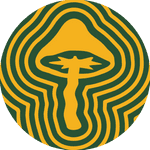

As psychedelic-assisted therapy has grown in interest over the years, scientists have recognized it as a clinically effective treatment for a variety of psychiatric disorders and health conditions like treatment-resistant depression, substance abuse disorders, post-traumatic stress disorder (PTSD), and chronic pain. In clinical settings, this form of therapy has been tolerated well by patients with minimal adverse effects.
However, there is minimal and conflicting data about the safety of psychedelics for those with epilepsy and seizure disorders. Some case studies have determined that psychedelics are unsafe for those with epilepsy, yet a majority of the results come from individuals who take the substances recreationally and are not supervised in clinical settings.
A recent scientific review has found that these substances are there is no direct link between psychedelic use and the induction of seizures, suggesting that psychedelics may be safe for individuals with epilepsy when used under medical supervision.
A closer look at psychedelics and seizures
The review, published in Frontiers of Pharmacology, included an extensive search of public databases for studies regarding psychedelics and seizures. After a full screening process, researchers determined eleven papers that met the inclusion criteria. From these articles, researchers meticulously analyzed any data regarding the type of psychedelic used, the context of their use, and the outcomes related to seizure activity.
Classical psychedelic substances like LSD and psilocybin were analyzed for their potential effects on seizure thresholds and neurological activity since they operate under the serotonergic system and are known for affecting various neural pathways. Atypical psychedelics like MDMA and ketamine were separately reviewed since they have different mechanisms of action. This distinction allowed for a more comprehensive understanding of how various psychedelics might impact seizure susceptibility.
The review analyzed both the unsupervised use of psychedelics and its use in clinical trials. For circumstances employed in clinical trials, researchers assessed the safety protocols used, how seizure-related side effects were monitored, and the overall outcomes for participants with a history of seizures.
Following the investigation, the review concluded that there is no evidence from trials or preclinical studies suggesting that psychedelics can cause seizures. This indicates that when used under supervision in controlled settings, these substances may not pose a risk of seizure occurrence (1).
Although there have been some reported cases of individuals experiencing seizures after using psychedelics, it’s important to note that these instances often involved factors, other complicating factors, such as the concurrent use of other substances, making it difficult to directly attribute the seizures to psychedelic use alone.
Future implications
Further studies will be needed in order to fully confirm the safety of psychedelics for those at risk of seizures; however, this review paves the way for more rigorous studies to be conducted in the future. Despite the concerns about seizures, the review also discusses the potential therapeutic benefits of psychedelics for those with epilepsy since the substances have shown success in treating other psychiatric conditions.
While there are no current studies on how psychedelics treat seizure disorders, controlled clinical trials suggest a relatively safe profile under supervised conditions. Given the high prevalence of mental health issues in individuals with epilepsy, a safe means to use psychedelics could offer healing for those who have not benefitted from traditional medicine.
References
- Freidel, Ninon, Liliane Kreuder, Brenden Samuel Rabinovitch, Frank Yizhao Chen, Ryan, and Evan Cole Lewis. 2024. “Psychedelics, Epilepsy, and Seizures: A Review.” Frontiers in Pharmacology 14 (January). https://doi.org/10.3389/fphar.2023.1326815.


